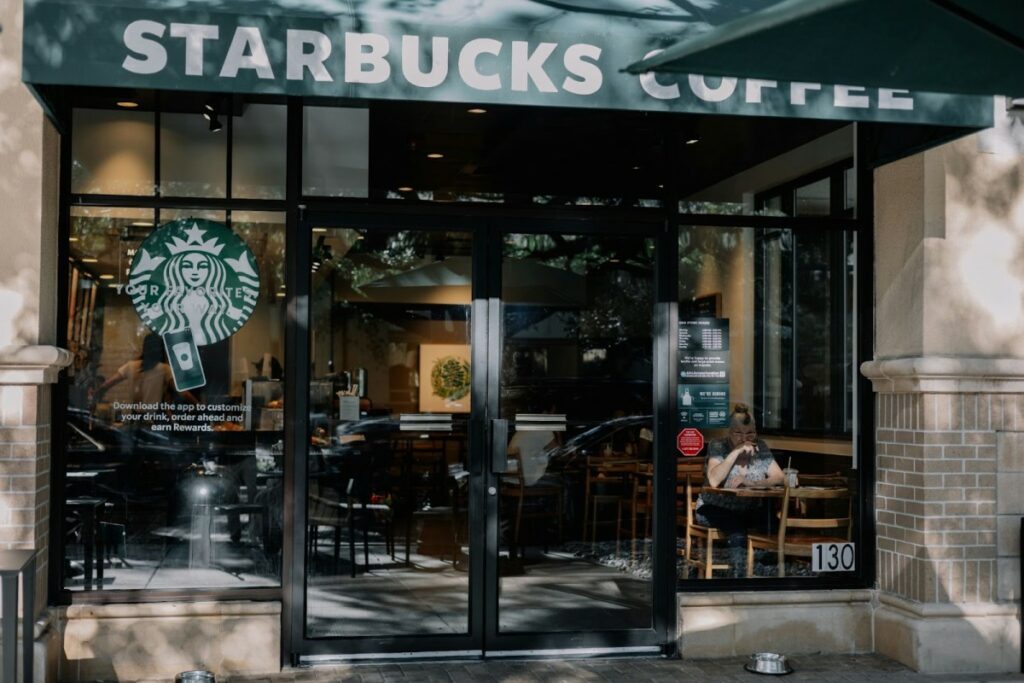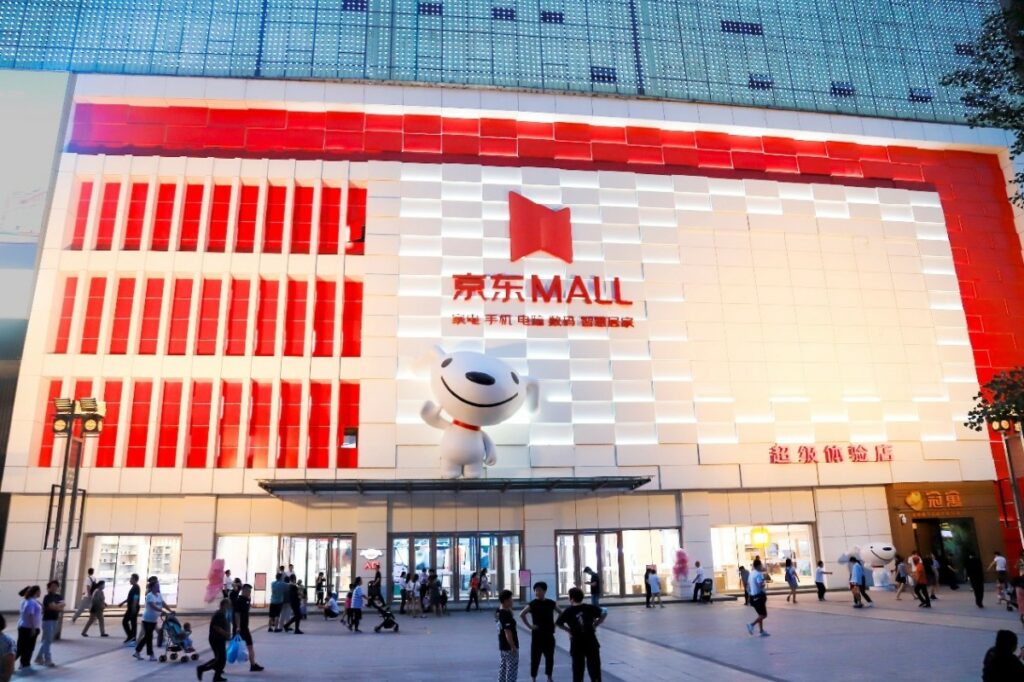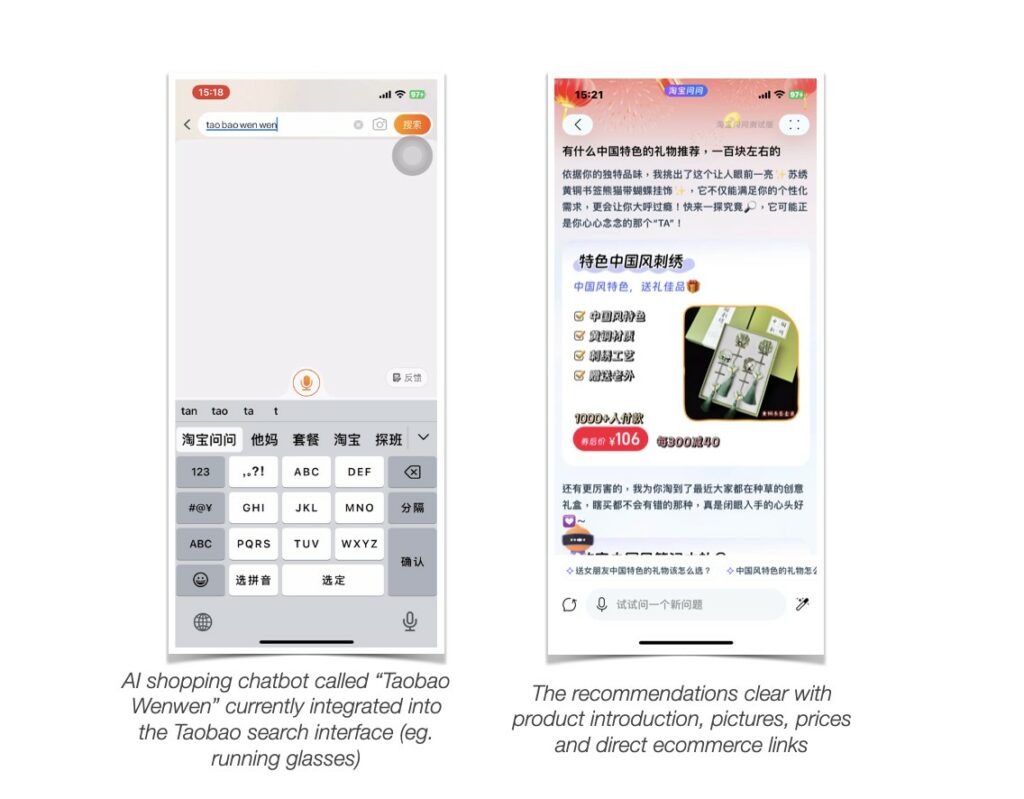Technological advancements have significantly transformed the retail industry. Innovations like omnichannel retail and conversational commerce have reshaped how retailers operate and engage with customers.
Omnichannel strategies enhance customer convenience and satisfaction by integrating online and offline experiences. Retailers can connect their physical stores seamlessly with digital platforms, providing a unified shopping experience.
The rise of AI-powered chatbots and virtual assistants allows retailers to offer personalized customer interactions. This technology improves service efficiency and enhances the customer journey by providing instant support and recommendations.
Advanced analytics enable retailers to gather and analyze customer data, leading to more informed business decisions. These insights optimize tailored marketing strategies and inventory management, resulting in increased sales and customer loyalty.
AR technology allows customers to visualize products in their own environment before purchasing. This immersive experience not only engages customers but also reduces return rates by more accurately meeting expectations.
The Impact of Technology on the Retail Industry
The retail industry is undergoing a profound transformation, driven by rapid advancements in technology. The ways businesses interact with customers, manage operations, and deliver value are evolving at an unprecedented pace. Traditional retailers, once reliant on brick-and-mortar stores, are now integrating cutting-edge digital tools to create seamless, personalized, and efficient shopping experiences. As consumer preferences shift toward more dynamic and connected shopping journeys, understanding how technology is changing retail has become essential for businesses aiming to stay competitive.
The surge in technological innovation is enabling retailers to optimize every aspect of their operations, from customer engagement to inventory management. By leveraging tools like artificial intelligence (AI), augmented reality (AR), and automation, businesses can meet the growing demand for immersive and frictionless shopping experiences. This technological shift isn’t just about keeping up with trends—it’s about redefining retail to align with the modern consumer’s expectations.
Create Personalized, Multiple Consumer Touchpoints and Experiences
Technology is enabling retailers to forge personalized connections with customers across multiple channels. By leveraging websites, social media, mobile apps, email campaigns, and physical stores, brands can deliver cohesive and interconnected shopping journeys.
For example, AI-powered algorithms analyze customer behavior to recommend products tailored to individual preferences. Tools like chatbots and loyalty apps provide 24/7 support, ensuring a seamless transition between online and offline touchpoints. A well-integrated omnichannel approach enhances customer satisfaction, drives engagement, and builds loyalty.
Case in Point
Starbucks’ mobile app seamlessly integrates in-store and online experiences. Customers can place orders, earn loyalty points, and receive personalized offers, creating a unified and rewarding interaction with the brand.

Create Automated Shop Experience
Automation is revolutionizing how technology is changing retail, particularly for brick-and-mortar establishments. By automating inventory management, order processing, and customer interactions, businesses can improve efficiency and reduce human error.
Technologies like mobile associate apps enable store employees to track inventory in real-time, locate items across locations, and assist customers with placing orders for home delivery. Automated checkout systems, such as Amazon’s “Just Walk Out” technology, eliminate the need for traditional cashiers, allowing customers to shop and leave without waiting in line.
Why It Matters: Automation not only streamlines store operations but also enhances the shopping experience by reducing friction and providing faster service. Retailers can focus more on customer relationships and less on manual processes.
Develop Augmented Reality Touchpoints
Augmented reality is reshaping retail by offering immersive and interactive customer experiences. AR applications allow shoppers to visualize products in their environment, try on clothing virtually, and explore app-exclusive deals in innovative ways.
Examples of AR in Retail:
- IKEA Place App: Lets customers visualize furniture in their home before making a purchase.
- Sephora Virtual Artist: Allows users to try on makeup virtually using their smartphone camera.
AR isn’t just a novelty; it enhances customer engagement, boosts confidence in purchasing decisions, and elevates brand perception. These immersive experiences foster emotional connections, increasing the likelihood of repeat business.
The Broader Impact of Technology on Retail
1. Building Customer Trust Through Data-Driven Insights
Data analytics, powered by AI, is central to how technology is changing retail. Retailers can analyze consumer behavior to predict trends, optimize pricing strategies, and tailor marketing efforts. By delivering relevant and timely offers, businesses can establish trust and show customers they truly understand their needs.
2. Adopting Eco-Friendly Practices Through Technology
Sustainability is a growing concern for consumers, and technology is enabling retailers to adopt greener practices. Tools like blockchain ensure transparency in supply chains, while AI helps optimize routes for delivery vehicles, reducing carbon footprints.
3. Enhancing Decision-Making with Real-Time Analytics
Retailers now have access to real-time data on inventory levels, sales performance, and customer feedback. This immediate insight allows businesses to respond swiftly to market demands, improving operational agility and customer satisfaction.

How Technology Changing Retail from Four Aspects
Omnichannel Retail
Technology has enabled the rise of omnichannel retailing, where businesses seamlessly integrate various sales channels to provide a unified shopping experience. Customers can seamlessly transition between online and offline channels, browse products, make purchases, and even return items through different touchpoints. This integration enhances customer convenience and enables retailers to deliver a consistent brand experience across multiple platforms.
For example, JD.com unveiled its “JD MALL” brand, an enhanced iteration of its E-Space omni-channel retail experience store. The official launch took place on September 14 during an online press conference, and the inaugural JD MALL store will open its doors in Xi’an, China, on September 30. Spanning an impressive area of 42,000 square meters across five floors, JD MALL in Xi’an aims to provide customers with an immersive and comprehensive omni-channel shopping experience. The store boasts a vast selection of over 200,000 items sourced from more than 150 prominent domestic and international brands.

Consumers are able to place orders through the official WeChat Mini Program by scanning QR codes on each of the items, and JD will handle the last-mile delivery to their doorsteps through the company’s strong logistics infrastructure. In addition to traditional categories such as electronics, home appliances, and digital accessories offered in E-Space, JD MALL also provides a wide range of items in home , furniture, kid, smart healthcare products and auto accessories.
At the same time, JD MALL offers one-stop home design services and home appliance package purchases, enabling customers to enjoy a seamless shopping experience from designing, product selection to installation and aftersales. A selection of products also supports 2-hour delivery and 24-hour installation services. JD MALL combines fashion and technology elements from design to experience. Customers can enjoy tech devices and experiences including holographic projection, VR equipment, intelligent robot, a virtual livestream room and transparent computer room.These tech-forward approaches are also highlighted in Customer Engagement Strategies from China that Work.
Customers and Big Data
Technology has given retailers unprecedented access to customer data, allowing them to gain valuable insights into consumer behavior and preferences. Big data analytics enable retailers to personalize marketing strategies, tailor product recommendations, and optimize pricing and promotions. By understanding customer needs and preferences, retailers can enhance customer satisfaction, build loyalty, and drive sales.
Douyin, often referred to as the Chinese equivalent of TikTok, has made significant strides in the realm of e-commerce since introducing commerce functionality in. In 2021 alone, it achieved an impressive Gross Merchandise Volume (GMV) surpassing US$150 billion. The estimated GMV for Douyin’s e-commerce transactions in 2023 is approximately 4.2 trillion US dollars, posing a substantial threat to traditional e-commerce giants such as Tmall and JD.
The platform’s success can be attributed to several factors, including the viral nature of its content, seamless integration of commerce features, and notable demographic shifts among China’s millennial and Gen-Z consumers. Douyin’s ability to captivate and engage users through innovative content and its ability to facilitate natural commerce experiences has resonated with the younger generation, leading to significant market share gains in the e-commerce landscape.
Douyin has recently expanded its commerce component by introducing flagship stores, a feature reminiscent of traditional e-commerce marketplaces. These stores, launched in March 2021, incorporate familiar elements such as banners, in-store search bars, categories, and vouchers. To provide a personalized experience, Douyin’s algorithm analyzes user behavior and interests, tailoring the content to align with their preferences.
For example, if a female user frequently watches short videos related to skincare, Douyin’s algorithm recognizes her strong interest in skincare and curates content accordingly. When the user comes across a skincare product that aligns with her preferences, she can make an instant purchase within the app. Moreover, the app categorizes customers searching for beauty tools as potential customers for other cosmetics products, increasing their exposure to relevant beauty and personal care content and products.
Douyin’s algorithm continuously optimizes content based on user actions such as product browsing, purchases, and other behaviors. This optimization enables the platform to accurately match products to users’ interests, resulting in higher conversion rates and repurchases. By serving relevant ads and facilitating seamless purchasing experiences, Douyin enhances user satisfaction and drives increased engagement and sales within the app.
Delivery Proposition
Technology has revolutionized the delivery aspect of retail, offering new and innovative ways to fulfill customer orders. The rise of e-commerce has led to the introduction of various delivery options such as 1-hour delivery, click-and-collect, and lockers. Additionally, advancements in logistics and tracking systems enable retailers to provide real-time updates on delivery status, improving transparency and customer satisfaction.
Global convenience store chain 7-Eleven has announced its partnership with Chinese food delivery platform Meituan to conduct a trial of drone delivery in Shenzhen, Guangdong. This marks the first time the Japanese-owned Texas-based convenience store giant has introduced drone delivery in China. Customers in the Longgang COCO Park business area can now opt for their 7-Eleven orders to be delivered via drones.
The drone delivery service encompasses more than 3,000 types of merchandise available at 7-Eleven, including nearly 100 fresh food items. Meituan has revealed that the fastest delivery can arrive just 4 minutes after packing. Feedback from customers participating in the trial indicates that this new delivery method reduces waiting time by 10 minutes.
Given that 7-Eleven operates over 1,700 stores in 13 cities in Guangdong, more stores, including those located in tourist attractions and university campuses, will introduce drone delivery. By the end of 2023, Meituan’s drone department had already launched 25 shipping routes in 11 business areas across cities such as Shanghai and Shenzhen, completing over 220,000 orders.
Conversational commerce
Technology has facilitated the emergence of conversational commerce, where retailers leverage chatbots, voice assistants, and messaging platforms to engage with customers and facilitate transactions. Conversational interfaces allow customers to interact with brands, seek product recommendations, and make purchases through natural language conversations. This trend enhances customer convenience, provides instant support, and enables personalized shopping experiences.
Conversational commerce is a type of social commerce that emphasizes real-time conversations and interactions. It involves using Livestreaming, Chatbots, Voice Assistants, and Chat Apps to facilitate the buying and selling of products or services.
Taobao Wenwen as a Generative AI chatbot launched in mid 2023 provides customized recommendation services based on users’ search history and interests. Recommendations are shared as text, picture or video responses with links to corresponding products. Wenwen currently covers 5 main functional scenarios: helping users choose products, travel planning, life assistants, food enthusiasts’s guides, and writing materials.
Wenwen is the first time that Alibaba apply its LLM “Tongyi Qianwen” into its e-commerce platform Taobao, part of a broader rollout of the artificial intelligence-powered tool across its ecosystem. There are over 5 million users in Wenwen today, with most active users asking more than 8 questions per day.

In order to navigate the ever-changing retail landscape, it is crucial to seek guidance from an expert, keynote speaker, or consultant who can provide valuable insights and strategies. China’s advancements in the retail industry present an opportunity to learn from their successes and failures. Ashley Dudarenok, as the top expert on various topics in China, is the ideal choice for a keynote session.
Her expertise and deep understanding of digital China, new retail, and tech ecosystems make her an invaluable resource. With her extensive experience and thought leadership, Ashley offers guidance on the future of retail, digital transformation, and customer centricity. Her keynote sessions goes into topics such as retail technology, omnichannel strategies, data-driven insights, delivery solutions, and conversational commerce.
By engaging Ashley as a keynote speaker, businesses can gain a competitive edge by learning from China’s advancements and implementing effective strategies to thrive in the evolving retail landscape.
How Technology Is Changing Retail: The Way Forward
Retailers that embrace the potential of technology are not just keeping up—they are leading the industry into the future. From personalized interactions to automated efficiency and augmented reality experiences, technology provides the tools to meet and exceed customer expectations.
Businesses must focus on adopting these innovations strategically, ensuring they are aligned with customer needs and business goals. By leveraging the full potential of technology, retailers can position themselves as leaders in an ever-evolving market, delivering exceptional experiences and driving growth.The future of retail is here. Are you ready to transform your business?

Ashley Dudarenok: Leading Keynote Speaker
Ashley is a thought leader in the spaces of Digital China, New Retail, and tech ecosystems. She is the author of 11 best-selling books covering Digital China, New Retail, and Tech Ecosystems. She is a professional keynote speaker on the future of retail, customer centricity, China’s tech ecosystems and evolving business models.
Ashley is regularly brought in to consult companies’ top management and boards to provide a clear vision on the future of retail, digital transformation and customer centricity based on her expert knowledge of the highly competitive fast moving Chinese market. She is acknowledged as one of the World’s Top 100 Retail Influencers by ReTHINK Retail.
Ashley also collaborated with multinational companies like Coca Cola, J&J, Shiseido, BMW, and Disney—establishing herself as a top speaker on China and tech trusted by global brands. She is recognised thought leader in Chinese customer centricity, the future of retail and China leadership models by Forbes. Ashley has direct access to the up-to-date data on Digital China, New Retail, and tech ecosystems and shares up-to-date insights on the future of retail and how to implement it in their business

Ashley Dudarenok as a Retail Technology Keynote Speaker
Ashley Dudarenok, a technology keynote speaker specializing in retail technology, offers a comprehensive understanding of how technology is revolutionizing the retail industry from four key aspects. Explore more in this deep dive on what is retail technology.
With her expertise in omnichannel retail, she highlights the transformative power of seamlessly integrating online and offline channels to create a seamless customer experience.
Ashley also delves into the impact of technology on customers and big data, emphasizing how retailers can leverage data-driven insights to understand consumer behavior and personalize their offerings. Furthermore, she explores the evolving delivery proposition in the digital age, showcasing how technology enables efficient logistics, last-mile delivery solutions, and enhanced customer convenience.
Ashley also sheds light on conversational commerce—one of her focus areas as a retail keynote speaker—showcasing how technologies like chatbots and AI-powered assistants are reshaping customer interactions. Through her keynote sessions, Ashley provides valuable insights and strategies for retailers to embrace technology and thrive in the ever-changing retail landscape.

How Technology is Changing Retail – Frequently Asked Questions (FAQs)
Hiring a keynote speaker might just be the secret key to success for your event. Our FAQs address the value and impact of this decision.
-
What is omnichannel retail, and how is technology enabling it?
Omnichannel retail refers to the integration of multiple sales channels, such as physical stores, websites, mobile apps, and social media, to provide customers with a seamless and cohesive shopping experience. Technology plays a crucial role in omnichannel retail by enabling synchronization between these different touchpoints.
For example, advanced customer relationship management (CRM) systems, cloud computing, and real-time inventory management allow retailers to offer services like buy online, pick up in-store (BOPIS) or seamless returns across channels. Technology ensures that customers can transition between online and offline experiences effortlessly, enhancing convenience and improving brand consistency.
-
How does technology empower retailers to understand customers and leverage big data?
Technology has revolutionized how retailers gather and analyze customer data. Through the use of big data analytics, retailers can track customer behavior across various touchpoints—such as online browsing, purchase history, and social media engagement. This data allows businesses to personalize their marketing strategies, optimize pricing, forecast demand, and tailor product recommendations based on consumer preferences. With AI-powered tools and data analytics platforms, retailers can gain a deeper understanding of customer needs, leading to more targeted and effective marketing campaigns, improved customer satisfaction, and increased brand loyalty.
-
What advancements in delivery options are being driven by technology?
Technology has dramatically transformed the delivery landscape in retail, offering customers faster and more convenient options. Some advancements include 1-hour or same-day delivery services, real-time tracking, and click-and-collect (buy online, pick up in-store).
Retailers are also leveraging automation and AI to streamline their delivery processes, such as through the use of drones or autonomous vehicles for faster, more efficient shipping. Additionally, logistics technology has enabled retailers to optimize their delivery routes, cut costs, and reduce delivery times while enhancing the transparency and accuracy of shipping information for customers.
-
Who is Ashley Dudarenok, and what expertise does she bring as a retail technology keynote speaker?
Ashley Dudarenok is a globally recognized thought leader and expert on Digital China, New Retail, and tech ecosystems. She has written several best-selling books on topics including China’s digital landscape, social media marketing, and the future of retail.
As a digital transformation speaker, Ashley provides actionable insights on how technology is revolutionizing the retail industry. She shares her deep knowledge of China’s tech ecosystem, helping businesses understand how to leverage digital transformation, omnichannel retail, customer data, and advanced technologies to stay competitive in today’s rapidly evolving market. -
What is conversational commerce, and how is technology shaping its future?
Conversational commerce is the use of messaging apps, voice assistants, and AI-driven chatbots to enable direct communication and transactions between brands and customers. Through platforms like WeChat, Facebook Messenger, and voice assistants such as Amazon Alexa, retailers can engage with customers in real-time, answer queries, recommend products, and even complete purchases without requiring customers to leave the app. Technology is driving the growth of conversational commerce by improving AI-driven chatbots, enabling automated customer service, and providing personalized shopping experiences based on real-time data.
-
What role does 5G technology play in retail innovation?
5G technology is unlocking new possibilities for retail by enabling faster data transfer, reduced latency, and better connectivity. With 5G, retailers can deploy advanced technologies like augmented reality (AR) and virtual reality (VR) in stores without lag, improving customer engagement. For instance, AR mirrors and virtual fitting rooms function more smoothly, creating a more immersive shopping experience.
5G-powered IoT devices help with real-time inventory tracking and supply chain optimization, ensuring products reach customers quickly. It also allows for more reliable mobile payment systems and enhances the performance of mobile apps, leading to better customer satisfaction.
-
How is Artificial Intelligence (AI) transforming the retail industry?
Artificial intelligence (AI) is reshaping the retail industry by providing retailers with powerful tools for personalization, automation, and predictive analytics. As explored in the Future of AI in retail: Lessons from China 2025, AI algorithms analyze customer data to predict shopping behaviors, recommend products, and deliver personalized content.
Retailers use AI-driven chatbots for customer service, automate inventory management through AI systems, and leverage machine learning to optimize pricing and promotions. AI is also playing a critical role in fraud detection and supply chain optimization, helping retailers improve operational efficiency and customer satisfaction.
-
What role does Augmented Reality (AR) play in modern retail?
Augmented Reality (AR) is enhancing the retail experience by allowing customers to visualize products in their real-world environments before making a purchase. For example, AR apps let customers try on virtual clothing, see how furniture looks in their home, or test out cosmetics through their phone cameras.
By incorporating AR into their shopping experience, retailers can increase engagement, reduce return rates, and drive sales—principles Ashley emphasizes as a customer experience keynote speaker. Technology advancements in AR, such as more accurate facial recognition and better integration with e-commerce platforms, are revolutionizing how consumers interact with products online and in-store.
-
How does technology improve the in-store experience for customers?
Technology is improving the in-store shopping experience by creating a more personalized, interactive, and efficient environment. For example, retailers are integrating mobile apps with in-store experiences, allowing customers to access product information, promotions, and store navigation through their smartphones. Digital signage, interactive kiosks, and in-store robots are also helping improve customer service and enhance engagement. Additionally, retailers are using facial recognition technology and data analytics to offer personalized recommendations and promotions based on a customer’s past purchases and preferences.
-
What impact does blockchain technology have on retail?
Blockchain technology is transforming the retail sector by enhancing transparency, security, and traceability throughout the supply chain. Blockchain allows retailers to track the origin and movement of products in real-time, providing consumers with more information about the product’s journey and authenticity. It is also improving payment systems by offering faster, more secure transactions. Additionally, blockchain is enabling the development of loyalty programs where customers can earn and redeem rewards more efficiently and transparently.
-
How can retailers use technology to enhance their supply chain management?
Technology is helping retailers streamline their supply chains by providing real-time visibility, better forecasting, and more accurate inventory management. Retailers are using advanced data analytics to predict demand and optimize stock levels, ensuring they have the right products available at the right time. Automated warehouse management systems (WMS) and robotic process automation (RPA) are speeding up the picking, packing, and shipping processes. Additionally, retailers are adopting Internet of Things (IoT) devices and sensors to monitor the movement and condition of goods in transit, improving the accuracy and efficiency of deliveries.
-
What is the role of robotics and automation in modern retail?
Robotics and automation are revolutionizing retail by improving efficiency, accuracy, and customer service. In warehouses, robots are used for inventory management, picking, and packing, which leads to faster order fulfillment and reduced labor costs. In stores, automated checkout systems and robotic assistants help streamline the shopping process while enhancing the customer experience. For example, shelf-scanning robots can monitor inventory levels and alert staff when items need restocking. These technologies not only reduce operational costs but also ensure that customers always find the products they need in stock.
-
What are the key challenges in adopting new retail technology?
While technology offers significant advantages for retailers, the adoption of new retail technology comes with several challenges. These include the high initial costs of implementing new systems, the need for specialized technical expertise, and the integration of new technologies with existing legacy systems. Retailers must also address concerns around data security, privacy, and compliance with regulations. Furthermore, training employees to adapt to new technologies and ensuring customer acceptance of new systems can be a complex and ongoing process.
-
How can Ashley Dudarenok help businesses navigate the future of retail technology?
Ashley Dudarenok is a recognized expert in the digital transformation of retail, particularly in China’s rapidly evolving tech ecosystem. Through her keynote speeches, workshops, and consulting services, Ashley helps businesses understand the impact of technology on retail and how to leverage innovations such as omnichannel retail, AI, AR, and blockchain. She offers practical, actionable insights into digital transformation, helping companies stay ahead of the curve in a competitive market. If you want to ensure your business thrives in the future of retail, Ashley is the expert you need to guide you through this technological revolution.
Secure Ashley Dudarenok as your Retail Technology keynote speaker and gain tailored, forward-thinking insights that will prepare your organization for the future.Not sure if you need one? Here’s why hiring a keynote speaker can make all the difference.
Contact us to bring her expert analysis and global perspective directly to your next event.

